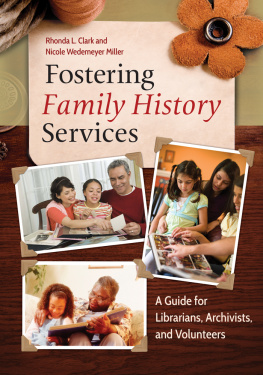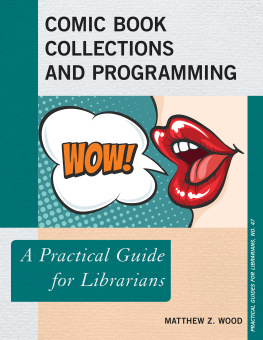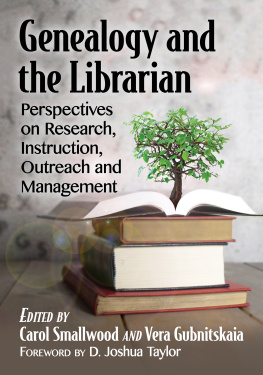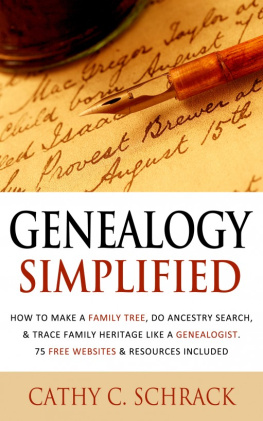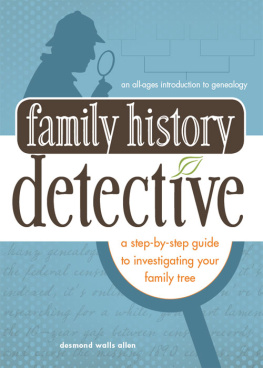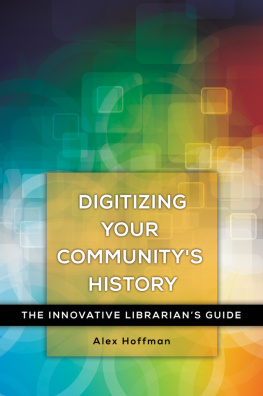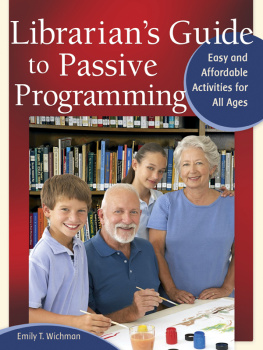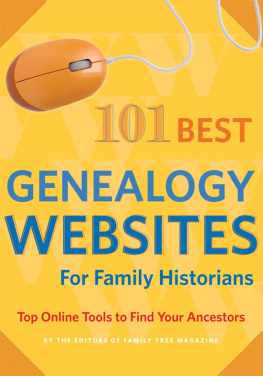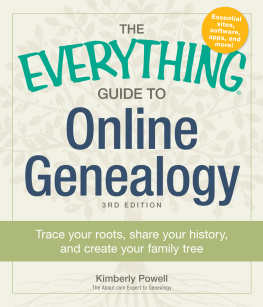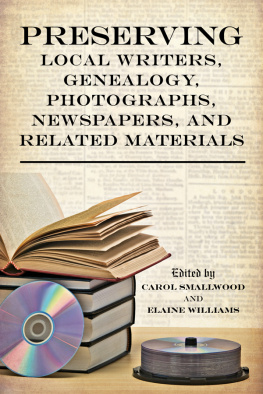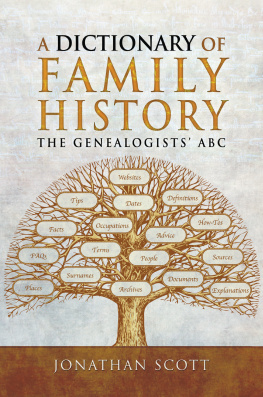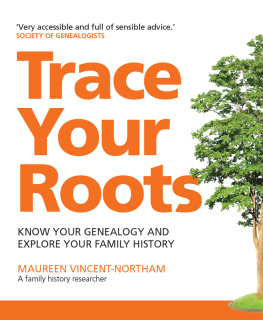FOSTERING FAMILY HISTORY SERVICES
A Guide for Librarians, Archivists, and Volunteers
Rhonda L. Clark and Nicole Wedemeyer Miller

Copyright 2016 by Rhonda L. Clark and Nicole Wedemeyer Miller
All rights reserved. No part of this publication may be reproduced, stored in a retrieval system, or transmitted, in any form or by any means, electronic, mechanical, photocopying, recording, or otherwise, except for the inclusion of brief quotations in a review, without prior permission in writing from the publisher.
Library of Congress Cataloging-in-Publication Data
Names: Clark, Rhonda L., author. | Miller, Nicole Wedemeyer, author.
Title: Fostering family history services : a guide for librarians, archivists, and volunteers / Rhonda L. Clark and Nicole Wedemeyer Miller.
Description: Santa Barbara, CA : Libraries Unlimited, [2016] | Includes bibliographical references and index.
Identifiers: LCCN 2015037572 | ISBN 9781610695411 (paperback) | ISBN 9781610695428 (ebook)
Subjects: LCSH: LibrariesSpecial collectionsGenealogy. | LibrariesSpecial collectionsLocal history materials. | Family archives. | Local historyArchival resources. | BISAC: LANGUAGE ARTS & DISCIPLINES / Library & Information Science / General.
Classification: LCC Z688.G3 C58 2016 | DDC 020.72dc23
LC record available at http://lccn.loc.gov/2015037572
ISBN: 9781610695411
EISBN: 9781610695428
20 19 18 17 161 2 3 4 5
This book is also available on the World Wide Web as an eBook.
Visit www.abc-clio.com for details.
Libraries Unlimited
An Imprint of ABC-CLIO, LLC
ABC-CLIO, LLC
130 Cremona Drive, P.O. Box 1911
Santa Barbara, California 93116-1911
This book is printed on acid-free paper 
Manufactured in the United States of America
CONTENTS
PREFACE
A wealth of how-to manuals is published each year aimed at the family historian. These works recognize the importance and popularity of genealogy as a pastime. They also reflect the increasing use of online research, DNA testing, and other technological applications for both finding and recording information. Yet very few volumes have been produced for the caretakers of family history collections, especially those located in public libraries and small, informal collections. Existing works are overview reference resources to familiarize librarians who will be working with local collections and include Jack Simpsons Basics of Genealogy Reference (2008) and David R. Dowells Crash Course in Genealogy (2011). In addition, detailed guides to the resources of genealogy and local history collections exist, the most comprehensive of which are Printed Sources: A Guide to Published Genealogical Records (1998) and The Source: A Guidebook to American Genealogy (2006). Additionally several works offer information on the arrangement, description, and cataloging of family history resources in historical societies, and libraries such as Lois Hamills Archives for the Lay Person: A Guide to Managing Cultural Collections (2013). Yet, while the resources of family history collections have maintained strong attention in the professional community, the use of these items as key components in institutional outreach, programming, and strategic planning has failed to capture significant attention from writers and researchers.
This work provides those information specialists working with family history collections some ideas and direction for offering their resources as an integrated part of their overall collections. The depth of materials and presentation style are chosen with the following assumptions:
- Many family history collections are staffed by volunteers, who may have experience in research for this area, but little knowledge of library and archival field standards and practices.
- The information professionals who provide reference and others services for family history collections may have little or no specialized education or training in this area.
- Those librarians, historians, curators, archivists, and volunteers who have had coursework or training sessions may be well-versed in one approach to such resources, but they may lack understanding in the approaches of other information settings.
- Few graduate-level courses available in library and information science programs focus on reference and outreach for family history.
- Local, state, and national classes that exist have often been viewed as specialized training, necessary for only those working on a daily basis with family history materials.
Based on these assumptions, this work is written to be accessible to a wide audience while still providing up-to-date information about resource curation and outreach. It provides numerous resource lists for further reading and checklists for suggested procedures and activities.
The topics of the nine chapters in this work demonstrate the growing need for integration of family history into general programming and outreach. They also acknowledge the need for community collaboration for digital portals and programs. In , for example, the conversation revolves around the definition of family history, and it emphasizes the fact that providing family history services are not necessarily tied to physical collections. Access to local history and genealogy resources are constantly improving as increasing numbers of digitized resources provide full-text searching and access from offsite. The role of the library is shifting to one that emphasizes services and search expertise, therefore, the importance of programming and outreach is presented as a key theme of the work regardless of whether or not the institution has a full family history collection. Multiple sample programming guides are provided throughout the work to emphasize the need for outreach and services using family history resources.
address specific resources and reinterpret them in light of their potential for family history. Traditional local historical writing and oral history projects are discussed, along with programming ideas. Various formats for genealogical writing are presented, and the vast opportunities for vibrant family history narratives are demonstrated. The work addresses the importance of informal family history writing, such as blogging and the many options for online recording of family history information.
focus on the need for libraries, historical societies, archives, and other institutions to provide information and programming on family collectibles, documents, and heirlooms. The archival community has taken the lead in such programming, but librarians and others should follow suit by posting relevant links on their home pages and by sponsoring programs on personal archiving. The way that families collect, preserve, and interpret their heirlooms will have a direct impact on the physical collections of future institutions. At the same time as staff members in institutions are encouraged to step up and provide programming on private and family collections, they also should consider the limits of their collecting abilities and the potential for user-added digital collections to solve potential space and staffing issues in the future. Good examples of such collaborations and efforts are showcased, particularly in archives and large historical societies.
discusses genealogy reference in a very different way than most published works have presented it, going beyond the reference interview and uses of specific resources. This chapter gives pertinent advice based on the authors experiences with genealogical questions. The chapter also discusses how to organize volunteers and staff from an institutional perspective, and provides insights on reference service policies.

